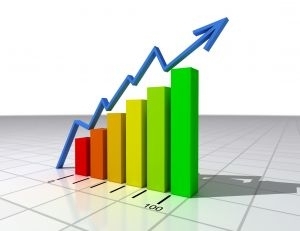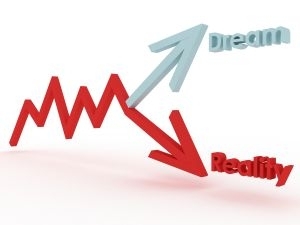| Home | About | Archives | RSS Feed |

@theMarket: What If?
 This week the scales finally tipped. The phones began to ring and each call was roughly the same.
This week the scales finally tipped. The phones began to ring and each call was roughly the same.
"What are the chances the debt ceiling won't be raised?"
"What happens if the politicians can't make a deal?"
"What will happen to my investments if the worst case scenario happens?"
Since the calls were coming in from Maine, Vermont, New York, Connecticut, Massachusetts and elsewhere, I'm sure you are all worried about the same thing. If, despite the odds, the debt ceiling is not raised by Aug. 2, 2011, the United States of America plunges into at least a technical bankruptcy. What will happen to the markets? The short answer is nothing good.
This is not an abstract issue. The dollar, as well as global stock and bond markets, would decline. The price of gold and possibly silver would jump but very few other asset classes would be immune from the carnage. The wave of selling would reverberate around the world because everyone is involved in America's bond market. The duration of this financial rout would probably be short lived, a day or three, maybe even a week, before our political "leaders" in Washington came to their senses. Personally, I believe that it would be a classic buying opportunity and one probably not seen since the week after 9/11.
A recent poll by CNBC indicated that 64 percent of viewers are blaming the Republicans for the present impasses in the debt ceiling talks. As for me, I blame us, the voters — Democrats, Republicans (especially the tea party) and independents for the present dilemma. I wrote "leaders" in quotes because the present fiasco has convinced me that there are no leaders left in Washington, D.C.
But why should that surprise you? The present blame game that is substituting for compromise among the congressmen and senators is a joke if one looks at the track record of these supposed leaders. President Barack Obama continuously reminds us that the problems started during the Bush administration. But he was elected to the Senate in 2005, just as the real excesses of mortgage-backed securities was getting under way. Joe Biden was a senator from 1972 until running for vice president in 2009. Where were they when we needed leadership and an effort to end the rampant speculation that was occurring on Wall Street?
Rep. Barney Frank was the chairman of the House Finance Committee before and during the financial crisis as was committee members Orin Hatch, John Kerry, Chuck Schumer and even Ron Paul. All these august officials were asleep at the switch despite receiving a wealth of information daily on the nation's financial system.
Rep. Rosa De Laura has been around since 1990 and sits on the House subcommittee on Labor, Health and Human Services. Steny Hoyer has been in the House since 1986 and was House majority leader from 2007-2011 and House minority whip from 2003-2007. Nancy Pelosi was the speaker of the House since 2007 and is now House minority leader; that about sums up the background of today's starting line-up on the Democratic side.
Republicans, on the other hand, beginning with our past president, presided over the financial crisis from 2000-2008. During that period, Eric Cantor, Paul Ryan, John Boehner, Mitch McConnell and many more of today's "responsible" budget-cutting GOP leaders knew and did nothing but watch as the financial system spun out of control. They too have conveniently forgotten their past lack of leadership and are busily blaming the opposing party for their own shortcomings.
Today we are looking to these same men and women to compromise, to work together and fix the economy, balance our finances, raise the debt ceiling and solve the nation's unemployment problem. We elected them, despite the knowledge that these very same people have been found wanting in the past. Why should we expect them to be any better today?
So let the chips fall where they may. I expect that until we have a deal the markets will continue their schizophrenic behavior. The best thing you can do is hunker down and wait for this storm to blow past.
Bill Schmick is an independent investor with Berkshire Money Management. (See "About" for more information.) None of the information presented in any of these articles is intended to be and should not be construed as an endorsement of BMM or a solicitation to become a client of BMM. The reader should not assume that any strategies, or specific investments discussed are employed, bought, sold or held by BMM. Direct your inquiries to Bill at (toll free) or e-mail him at wschmick@fairpoint.net . Visit www.afewdollarsmore.com for more of Bill's insights.
| Tags: debt ceiling, markets, Congress |
@theMarket: The Bottom Is In
 Well, we've made it through another pullback together. It seems clear to me that this week's stock market action is telling us that the worst is over — for now.
Well, we've made it through another pullback together. It seems clear to me that this week's stock market action is telling us that the worst is over — for now.
Yes, there are still a few dark clouds on the horizon. The closest one is the ongoing debate over increasing the nation's debt limit. Although I believe that in the end politicians will do the responsible thing and approve an increase, they are not beyond eleventh hour posturing. Few politicians can resist the chance to become the focus of the nation's attention by withholding their vote until all seems lost, only to relent at the last moment, thereby becoming our heroes. Disgusting? Yes, but that's what America's politics are all about these days.
As a result, expect continued volatility within the markets as te deadline approaches. The Obama administration claims we will run out the clock by July 22 while the Treasury is sticking with Aug. 2. The time it would take the Congress and Senate to ratify the debt increase accounts for the difference.
But the bias of the market, despite the volatility, will be toward the upside. It appears that investors are beginning to recognize all the positive factors that I have outlined over the past two months. Japan's economy, for example, is roaring back as indicated by very strong industrial production data this week. For readers who missed it, see my June 2 column "Japan, Is The Sun Beginning To Rise?" in which I both recommended Japan and predicted its rebirth. As it occurs, U.S. economic data will also start to strengthen. This Friday's manufacturing data, released by the Institute for Supply Management (ISM), is just a taste of what's to come. It showed the economy gaining strength for the first time in four months. Oh, and expect unemployment numbers to start dropping as well.
As you know, I have been arguing that the U.S. was in a soft patch of growth brought on by Japan's earthquake-related slowdown. Now that Japan is revving up, so will we. With Greece's problems resolved (at least until September) and oil prices heading toward $85 a barrel, Wall Street is finally waking up to what you and I have known for weeks.
Normally, after such a massive move, the markets should pull back to about the breakout level, which would be 1,300 on the S&P. It doesn't have to happen, but if it does, consider it a buying opportunity. For those of you who may have gotten cold feet during the tumultuous times of the recent past, that would be your chance to get back in.
As for the end of QE II, (see yesterday's column "The End of QE II"), all of the hyperbole you have been hearing about how interest rates would spike and the markets plunge did not materialize, nor will it. As I predicted, the demise of the Fed’s quantitative easing program is a non-event. With all these negatives removed from the market simultaneously, I expect stocks to roar. My price target for the S&P 500 remains at 1,450 or higher.
Once we get there, well, that may usher in a horse of a different color but first things first, the markets are going higher so enjoy your gains.
Bill Schmick is an independent investor with Berkshire Money Management. (See "About" for more information.) None of the information presented in any of these articles is intended to be and should not be construed as an endorsement of BMM or a solicitation to become a client of BMM. The reader should not assume that any strategies, or specific investments discussed are employed, bought, sold or held by BMM. Direct your inquiries to Bill at (toll free) or e-mail him at wschmick@fairpoint.net. Visit www.afewdollarsmore.com for more of Bill's insights.
| Tags: debt, Congress, Greece, Japan, pullback |
@theMarket: Better Days Ahead
 After this week you should have either an upset stomach, stress headache or both. Human beings do not do well in markets that climb up and down by over a percent on a daily basis. Unfortunately, as this market bottoms, we may expect more of the same.
After this week you should have either an upset stomach, stress headache or both. Human beings do not do well in markets that climb up and down by over a percent on a daily basis. Unfortunately, as this market bottoms, we may expect more of the same.
On the plus side, the Greek Prime Minister George Papandreou received a parliamentary vote of confidence this week. Yet, facing investors this week is a vote on the passage of the austerity plan that the European Community demands in exchange for bailout money.
Economic data continues to disappoint with the latest unemployment figures coming in more than expected. Wherever you look, gloom and doom pervades the minds and hearts of investors. On Wednesday, Fed chief Ben Bernanke didn't help by reducing the Fed's estimate for GDP growth in the second quarter from 3.1-3.3 percent to 2.7-2.9 percent. Even a 5 percent decline in oil was viewed as negative and simply another proof that the economy is faltering.
Most investors missed the point of Thursday's release of 60 million barrels of crude from the world's strategic oil supply. Pundits complained that it was too little to impact demand since it amounted to less than a day's supply of global demand. Others argued it was an act of desperation by an administration that has run out of ideas to stimulate the economy.
It was none of the above, in my opinion. Readers may recall that a few weeks ago prices of most commodities peaked after the CME raised margin requirements for everything from energy to silver. Speculators, who had bid commodity prices up to astronomical levels, abandoned the market in droves causing prices to decline to their present levels.
Most energy experts believe that the fundamental price where supply and demand for oil are in balance is closer to $85 in barrel. But notice oil, until this week it was still trading at $100 a barrel and above, (although down from its recent peak of $112 a barrel). Clearly, there were still a lot of speculators in the market, who could go either way. It was a tipping point where there was at least a 50/50 chance that traders might try and take the price higher once more.
To me, the International Energy Agency exhibited perfect timing. With a relatively small amount of released oil, they managed to drop the price of crude by $5 a barrel and send the speculators running for the hills. It has also added another element of risk since nervous traders will now have to be looking over their shoulder in case the IEA does it again.
As for the wall of worries that beset the market, all this pessimism is part of the normal process one expects as the averages descend to a level where buyers once again appear. Today we are probably within 1-2 percent of that area, if we are not already there. To me, the math is simple: a possible 50-point decline in the weeks ahead on the S&P 500 Index versus 150-200 points of upside. The risk/reward ratio tells me to not only hold the course but to buy on weakness.
Bill Schmick is an independent investor with Berkshire Money Management. (See "About" for more information.) None of the information presented in any of these articles is intended to be and should not be construed as an endorsement of BMM or a solicitation to become a client of BMM. The reader should not assume that any strategies, or specific investments discussed are employed, bought, sold or held by BMM. Direct your inquiries to Bill at (toll free) or e-mail him at wschmick@fairpoint.net. Visit www.afewdollarsmore.com for more of Bill's insights.
| Tags: silver, oil, commodities, Greece |
@theMarket: Greece — How To Default Without Defaulting
 The European Community's solution to the Greek debt crisis has been an exercise in kicking the can down the road for well over two years. Unfortunately, this Greek Tragedy is now taking on the dimensions of a three-ring circus and taking the world's financial markets along with it.
The European Community's solution to the Greek debt crisis has been an exercise in kicking the can down the road for well over two years. Unfortunately, this Greek Tragedy is now taking on the dimensions of a three-ring circus and taking the world's financial markets along with it.
This week, the volatility in the stock markets was reminiscent of the bad old days of 2008-2009. The on-again, off-again status of Greece's promised next installment of last year's bailout package was the chief cause of concern. The money was promised to Greece, if it cut the country's deficit of $40 billion. So far that hasn't happened. The Greek population has taken to the streets once again to prevent the passage of this new austerity package while Greek's ruling party is disintegrating.
In the meantime, Germany, the money man of Europe, has been insisting that the European private sector banks with large outstanding loans to Greece also become a party to any additional bailouts of the country. Germany's Angela Merkel had been insisting that 1) European financial institutions agree to give Greece an extra seven years to repay its bonds or 2) agree to a "Vienna-style" solution of swapping their existing Greek bonds for lower interest-bearing bonds.
The problem with scheme No. 1 is that the moment the private banks are forced to take a loss on their Greek debt holdings, global credit agencies would deem Greece in default. That would set off a number of sirens simultaneously in several markets. Countries with similar problems would see their bonds plummet.
The credit default swap market (CDS) would also be shaken. The CDS is where banks go to buy insurance against default by governments or corporate entities. I would guess, for example, that it costs $2 million or more every year just to insure these banks against a Greek default. But the European Central Bank is determined that any Greek debt restructuring should not trigger such a "credit event" that would enable buyers of CDS to be compensated from swap insurance sellers.
That leaves option No. 2, a Vienna-style scheme that would involve convincing banks to voluntarily accept new Greek bonds for old bonds at much lower rates of interest. That way the banks (and their shareholders) take the hit to their balance sheets and the insurance they hold would be of no value (because they would agree to take the hit "voluntarily"). I say good luck to that plan.
Investors would be smart enough to see right through that farce. They would dump their remaining European bank shares, any debt they might hold in countries such as Spain, Portugal, Ireland, etc., and would call into question the CDS insurance market overall. If governments can engineer defaults without calling them defaults, then what good is the disaster insurance that banks pay millions for each year?
Fortunately, we only have to wait until Monday for the outcome of this latest chapter in the ongoing saga of European debt restructuring. Euro zone finance ministers are meeting in Luxembourg on Sunday and will hopefully agree on some formula or compromise with Greece. Remember too that this is only an installment not a solution. It will only push the specter of default out until September. Then we get to kick the can down the road for another three months.
I am convinced that the International Monetary Fund and the European community's response to the debt crisis of the PIGS nations won't work. Something radical such as a debt-for-equity swap, combined with a debt forgiveness plan, a la Latin America in the Eighties, will be the ultimate solution to this crisis. On Friday, Deutsche Bank CEO Josef Ackermann agreed with me. He said that simply forcing Greece to impose austerity and reduce its budget deficit won't solve the crisis; it will only force the economy to contract further. He called for the creation of a European-style Marshall Plan, referring to the massive U.S. inspired "soft" loan plan to rebuild post-World War II Germany.
As for our markets, I maintain we are close to a bottom. Whether the S&P 500 Index bottoms at 1,275, 1,250, or worst case, 1,225, investors should be looking at equities. However, this time around I don't think commodities will lead the market. Instead, I would be looking at large-cap dividend stocks, the health care and some consumer staples as possible focus areas.
Bill Schmick is an independent investor with Berkshire Money Management. (See "About" for more information.) None of the information presented in any of these articles is intended to be and should not be construed as an endorsement of BMM or a solicitation to become a client of BMM. The reader should not assume that any strategies, or specific investments discussed are employed, bought, sold or held by BMM. Direct your inquiries to Bill at (toll free) or e-mail him at wschmick@fairpoint.net. Visit www.afewdollarsmore.com for more of Bill's insights.
| Tags: Greece, PIGS, bailout, Europe |
@theMarket: Jobs Versus the Market
 The May non-farm payroll jobs report was a disappointment. So much so that investors dumped stocks, convinced that because the country only added 54,000 jobs, the economy is kaput and we all headed for economic Armageddon. Now, doesn't that sound silly?
The May non-farm payroll jobs report was a disappointment. So much so that investors dumped stocks, convinced that because the country only added 54,000 jobs, the economy is kaput and we all headed for economic Armageddon. Now, doesn't that sound silly?
Let's get real folks. We didn't lose 300,000 jobs last month, which might have justified Friday morning's sell-off. Sure, economists were looking for a job gain of 100,000 plus but why should any one be surprised that unemployment is still above 9 percent given the slow growth rate of our economy?
Since the end of the recession, quarterly GDP has been at best erratic. Beginning with the third quarter of 2009, we have experienced the following string of quarterly numbers: 1.6, 5.0, 3.7, 1.7, 2.6, 3.1, 1.8 percent. All but one of those quarters have trended well below the normal economic recovery rates associated with the end of a recession. Is it any wonder that our unemployment rate bounces around while remaining inordinately high?
The spate of negative economic numbers we have been experiencing of late, in my opinion, has much more to do with the body blow Japan has taken from its earthquake and aftermath. After all, Japan is the second largest economy in the world and the fallout from its present recession impacts everyone.
As for the markets, I believe there are similarities between the April-August period of last year and what is happening today. At that time investors were concerned that we were falling back into a double dip recession. GDP for the second quarter of 2010 had dropped to 1.7 percent from 3.7 percent, while unemployment hovered at 10 percent.
The S&P 500 Index fell by over 16 percent. It was only after the Federal Reserve Bank announced the possibility of QE II that the markets recovered in August. Now the S&P is almost 300 points higher.
Last quarter's GDP growth rate was 1.8 percent down from 3.1 percent the quarter before and unemployment is 9.1 percent, up a smidgeon from last month. Unlike last year, however, we face the "end" of QE II in less than 30 days.
Readers may recall that I discounted a double-dip recession last year. I argued that we were in a slow growth recovery and should expect erratic and conflicting economic data into the foreseeable future. As long as the housing market remains in the doldrums, so will the economy. That argument still holds. At the same time, if the economy slows further, the Fed still has our back no matter how many QEs it takes.
What investors tend to forget is that we narrowly escaped a second worldwide Depression two years ago. While politicians, investors and taxpayers alike speechify about our government's huge deficit and wasteful spending, they should stop and ask why the deficit and spending is where it is today.
As a result of the financial crisis, the deleveraging of debt in the private sector was an absolute necessity. The only way to accomplish that, without driving the world over the brink, was for the government to take on that debt (deliberately leveraging the public sector balance sheet) while, at the same time, spending as much as possible to jump start the economy.
To date, that strategy has worked, although not as perfectly as certain textbook economists might have hoped. We have averted a Depression although this last Great Recession is not like any of the recessions we have experienced since the end of WW II. It is going to take time, effort and patience to unwind the financial tangle that our banks, brokers and insurance companies have created. We are on the right track, even if our path ahead is dimly lit. Expect the track to run through peaks and valleys, make sharp turns, and accelerate at times, while coasting at others. In the meantime, stay the course.
As I write this, the markets are wrestling with 1,300 on the S&P 500 Index, the bottom end of my projected range. Could the markets fall even further? Of course, they can. If we break 1,300, the next stop would be 1,250-1,275, still not the end of the world. From top to bottom that would be an 8 percent correction, after a 300-point rally over 11 months. I'll gladly accept that kind of pullback for a chance to rally up to 1,400 or above.
Bill Schmick is an independent investor with Berkshire Money Management. (See "About" for more information.) None of the information presented in any of these articles is intended to be and should not be construed as an endorsement of BMM or a solicitation to become a client of BMM. The reader should not assume that any strategies, or specific investments discussed are employed, bought, sold or held by BMM. Direct your inquiries to Bill at (toll free) or e-mail him at wschmick@fairpoint.net. Visit www.afewdollarsmore.com for more of Bill's insights.
| Tags: jobs, unemployment, economy |

